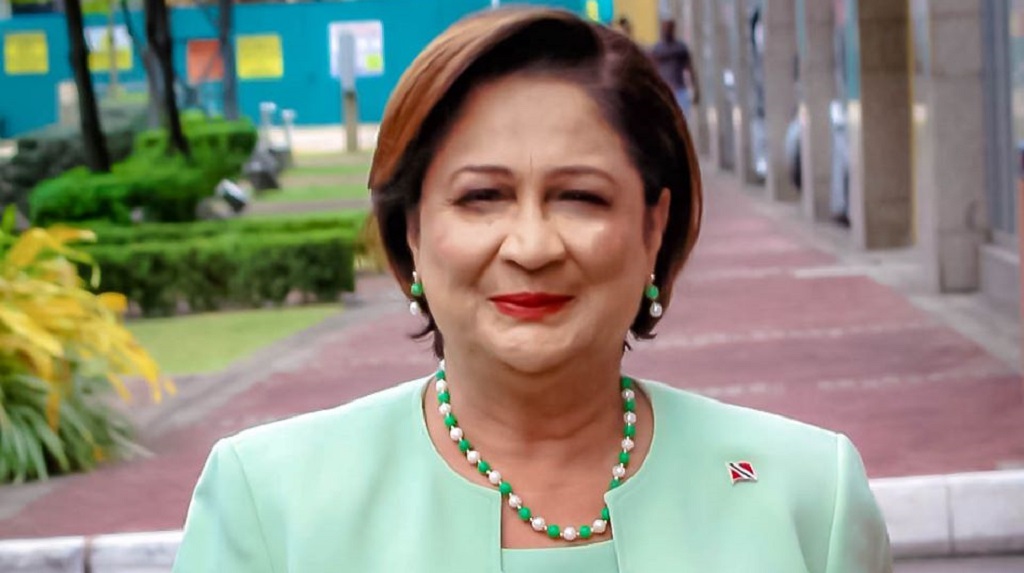The United National Congress (UNC) has offered five suggestions to the Government on how to stimulate the economy post-COVID-19.
Opposition Leader Kamla Persad-Bissessar uploaded a video on Monday in which she outlined what was dubbed the “National Economic Transformation Masterplan”. This, as she criticized the Government’s short term fiscal packages and urged the administration to put the public first and consider the proposals.
“The work the UNC has done for economic recovery is in the national interest, it is for every single citizen and therefore I believe it would be selfish of us to hold on to it, given how valuable it is to rebuilding our country right now. The lives of our citizens matter more than politics. I appeal to the Prime Minister and his team to put people before party and politics and accept our plan,” she said.
Persad-Bissessar noted that the plan was subject to change based on new developments surrounding COVID-19. In the meantime, she put forward five “economic booster shots” for recovery and growth.
This includes reducing the tax burden, jumpstarting food security, refining the Petrotrin oil refinery and investing in renewable energy. She said thorough research and planning led her to believe that this would create 50,000 new jobs within five years and double non-energy exports to $5 billion US dollars by 2025.
As it relates to taxes, the UNC leader said the Government should reduce personal and corporate income taxes, simplify the VAT regime, remove basic food items from the VAT net and improve the efficiency of the tax system by strengthening the Board of Inland Revenue, VAT office and Customs and Excise.
She went on to note that 25,000 acres of former Caroni lands should be leased to create agricultural parks. She added that at least 10% of the Public Sector Investment Programme should be spent to develop agricultural access roads, irrigation and drainage for these agricultural parks.
“We will also incentivize the private sector to establish an agro-processing plant. There will be NO more wastage or dumping of produce which is a bane for many of our farmers.”
On the third point regarding the restart of a reformed oil refinery, Persad-Bissessar said the Keith Rowley-led administration must re-examine its plan for Petrotrin.
“By re-opening Petrotrin, we will have greater fuel security, save foreign exchange, provide meaningful jobs and ensure the company continues to contribute to the Treasury.”
Additionally, she said the Government ought to invest in renewable energy and make actionable, climate change policy, in keeping with the 2015 Paris Agreement. This includes establishing a solar energy park at Tamana and industrial recycling parks across the East-West Corridor.
The UNC leader ended with advising the Government to create three funds to mobilize financial resources; a National Food Security Fund, National Infrastructure Fund and a National Climate Trust Fund.
“The National Food Security fund will invest in land, farms, forestry and agricultural businesses abroad to give us greater food security. This Fund will be a wholly-owned subsidiary of the Heritage and Stabilisation Fund (HSF). This Fund will be capitalised by allowing the HSF to invest up to 10 percent of its total assets in alternative investments. This will mobilise about US$500 million in capital for the National Food Security Fund.
The National Infrastructure Fund will support strategic investments in public transport, solar, water and wastewater facilities, climate-resilient infrastructure, and green housing.
The National Infrastructure Fund will be capitalised using the idle cash balances of State-controlled institutional investors like the National Insurance Board (NIB) and the Unit Trust Corporation (UTC). This will mobilise an initial $4 billion in capital for the National Infrastructure Fund. Life insurance companies and private pension funds can be encouraged to become either shareholders or investors in the National Infrastructure Fund, thereby substantially boosting its pool of capital.
The Green Fund should be repurposed into a National Climate Trust Fund which will finance new green technology start-ups and provide the financial backing we need to create a low-carbon economy. The Government should use the $5 billion in cash balances of the Green Fund to capitalise the Climate Trust Fund. This will attract international grant funding and private sector capital, substantially boosting the pool of funds available for climate-smart investments.”
Persad-Bissessar said this plan can save time and help people become employed quicker and earn paycheques faster after the pandemic.




